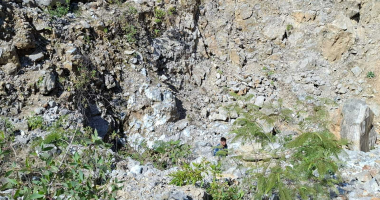- Polymetals (POL) identifies three new mineralised trends within its Alahiné Gold Project in Guinea, West Africa
- Since drilling began in November, a total of 751 holes have been drilled to test mineralised saprolite beneath areas that host more than 100 parts per billion gold in soil anomalies
- The three trends run in a north-northeast direction and provide justification for further testing and will be prioritised in the planning of the upcoming phase three drilling program
- An airborne magnetics survey is scheduled to begin within the next two weeks to define additional targets at the Alahiné and Mansala projects
- Shares in Polymetals have been trading steady at 12 cents since March 8
Polymetals (POL) has identified three new mineralised trends within its Alahiné Gold Project in Guinea, West Africa.
Since auger drilling began in November, a total of 751 holes, for 8619 metres, have been drilled at the project.
This drilling focused on testing mineralised saprolite beneath areas that host more than 100 parts per billion (ppb) gold in soil anomalies.
The three new trends run in a north-northeast direction and provide justification for further testing and will be prioritised in the planning of the upcoming phase three drilling program.
Drilling was completed by Sahara Natural Resources with assaying completed by the SGS laboratory in Mali.
“Three new mineralised trends identified during the recent drilling provide Polymetals with several follow up targets in addition to the well-defined north-northeast trend confirmed during the Phase 2 aircore drilling program,” Lead Geologist Nana Asante said.
“We are excited about the imminent airborne geophysics survey and the upcoming Alahiné Phase 3 program testing the breadth of the prominent north-northeast trend and we look forward to providing further market updates as we progress.”
An airborne magnetics survey is scheduled to begin within the next two weeks to define additional targets at the Alahiné and Mansala projects.
Shares in Polymetals have been trading steady at 12 cents since March 8.







